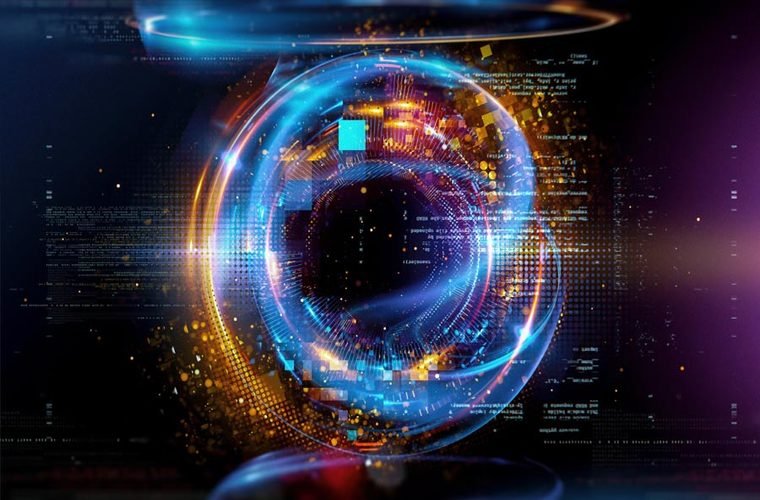By 2030, quantum computers may be able to hack the complicated math that keeps all digital communication safe and literally “break the internet.” Researchers have begun exploring novel methods to keep data encrypted as the world eventually transitions in the future to quantum based systems. One idea, a quantum internet, may be an effective method to ensure your data stays safe, but it is still very theoretical.
BACKGROUND: What is Quantum Internet?
Countless encrypted messages are zipping around the internet right now. They use public-key cryptography (PKC) to ensure they remain private. In simple terms, the encrypted information is shared via a public key that anyone can use to encrypt that information to a specific recipient. That recipient has a private key that can unlock the encryption and allow them access to the information. Without the private key, the information remains hidden behind the encrypted code.
While the reality of this encryption system is infinitely more complicated and nuanced than explained here, the gist is that complex algorithms protect all private information. Trying to break through that encryption is far from easy and is the fundamental basis of internet security. Whether it is your bank account information or the messages you send on Signal, PKC keeps that data secure. Quantum computers, by their very nature, can cut through those algorithms fairly quickly. According to some researchers, the solution is to create a digital ecosystem that is unhackable, even at the quantum level.
“The quantum threat is basically going to destroy the security of networks as we know them today,” explained Bruno Huttner, the director of strategic quantum initiatives for Switzerland-based ID Quantique.
Speaking at the Inside Quantum Technology Europe Online conference in late October, Huttner explained that all our information and data face a “quantum threat.”
ANALYSIS: WHY QUANTUM INTERNET MAY BE ESSENTIAL
Quantum computers are a collection of quantum circuits that run quantum bits, or qubits. They are similar to the bits in traditional computers. The bits your phone or laptop currently uses can represent only one of two possible states, a “1” or a “0.” Your computer system’s speed is dictated by how many bits it can process in a given time. Qubits can be in a “1” or a “0” or in what is known as a superposition of both “1” and “0.” In other words, a qubit isn’t limited to an either/or but can be both simultaneously. This curious fact can improve computer power significantly, so much so that the algorithms used to encrypt data online would be decoded with great ease.
Quantum computers are far from becoming mainstream tools and even further from becoming a weapon to decrypt all secure internet communications. However, that hasn’t stopped governments and corporations from throwing money and people at the technology. Earlier this year, the US government allocated $1 billion to fund more research into quantum computing. IBM has announced plans to develop a computer chip that works at the quantum level. China has also been exploring the technology. The race is on, and the victor may develop the ability to hack any computer system with impunity
OUTLOOK: The Future of the Internet
Huttner is calling for a “quantum-safe solution.”
“One is basically using classical [means] to address the quantum threat. The other is to fight quantum with quantum, and that’s what we at ID Quantique are doing most of the time,” Huttner stated at the conference.
The first method is called post-quantum cryptography (PQC), a series of multiple approaches to complicate the algorithms enough that it becomes challenging to decrypt. While each approach in PQC varies, the overall idea is to make the math as complicated as possible. The problem is that as quantum computers become more powerful and practical, these algorithms will eventually be broken. Huttner argues that the best method is to have a quantum computer generate the security keys and have them exist on a quantum network.
He refers to this as quantum key distribution (QKD) transmitted via a quantum information network (QIN). In simple terms, a quantum internet where quantum computers manage all encryption. Oddly enough, your data would not be protected by intricate mathematical calculations but by physics itself. The big question is, “how do we make this happen?” The technology, as it stands, is theoretical and far from being made real. However, history shows that science has a knack for new ideas and discoveries, especially at the risk of having the internet break and losing all those cute photos of people’s cats.
Follow and connect with MJ Banias on Twitter: @mjbanias

